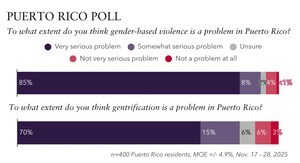
Study Indicates Film Critics Have Moderate Influence but Most is Negative
BOSTON, May 3, 2018 /PRNewswire/ -- A study conducted as part of a School of Communication research course at Emerson College indicates that film critics have a moderate influence on movies but that most of that influence is negative. Specifically, the study compared critics' reviews with box office revenue and found that negative reviews had more of an influence than positive reviews.
The sample included all wide releases and limited releases from 2015-2017 which consisted of 1,100 movies using data from The Numbers and critics reviews from Rotten Tomatoes. A Pearson's correlation analysis was then conducted to compare Rotten Tomatoes scores with a movie's first weekend gross revenue based on revenue per theater and its total domestic gross revenue.
For the first weekend, the analysis found that critics' reviews of wide releases had a moderate correlation of 33% with Rotten Tomatoes scores while limited releases had a weak correlation of 16%. When compared to total domestic gross revenue, the research found a correlation of 37% for wide releases and a correlation of 14% for limited releases.
In both analyses, negative reviews had more of an impact than positive reviews based on those movies with a rating of less than 80% and those with a rating of 80% or greater. Negative reviews for the first weekend had a correlation of 26% for wide releases and a correlation of 21% for limited releases. The positive reviews only had a correlation of 3% for wide releases and 2% limited releases but these findings were not statistically significant.
When analyzing total domestic gross revenue, the negative reviews had a correlation of 29% for wide releases and a correlation of 15% for limited releases. The positive reviews had a correlation of 12% for wide releases and 3% for limited releases but, like the findings for the first weekend, these results were not statistically significant either.
| First Weekend (Revenue Per Theater) |
|||
| Correlation |
R Squared |
||
| Wide Releases |
.33 |
.11 |
|
| Negative Reviews |
.26 |
.07 |
|
| Positive Reviews |
.03* |
.001 |
|
| Limited Releases |
.16 |
.03 |
|
| Negative Reviews |
.21 |
.04 |
|
| Positive Reviews |
.02* |
.0004 |
|
| * Statistically insignificant |
|||
Exhibit 1: First Weekend (Revenue Per Theater)
The charts in Exhibits 1 and 2 provide a summary of the statistics for both the first weekend and total domestic gross revenue. Along with the correlation coefficient (i.e., r value), these charts include the r squared statistic. This statistic is calculated in regression analysis and is the square of the correlation coefficient. This figure represents the degree to which one variable influences another.
As the charts illustrate, though there is a weak to moderate correlation between critics' reviews and movie outcomes, the r squared figures indicate that most of a movie's performance for both wide releases and limited releases is determined by other factors.
| Total Domestic Gross Revenue |
|||
| Correlation |
R Squared |
||
| Wide Releases |
.37 |
.14 |
|
| Negative Reviews |
.29 |
.09 |
|
| Positive Reviews |
.12* |
.01 |
|
| Limited Releases |
.14 |
.02 |
|
| Negative Reviews |
.15 |
.02 |
|
| Positive Reviews |
.03* |
.001 |
|
| * Statistically insignificant |
|||
Exhibit 2: Total Domestic Gross Revenue
"This study demonstrates the influence of a negativity bias in critics' reviews," said Owen Eagan, an Executive in Residence in the Department of Communication Studies. "This is not surprising in light of loss aversion theory which states that when people are faced with risk they are more likely to avoid losses than they are to seek gains."
To request a copy of the study, please contact Owen Eagan at [email protected].
Contact:
Owen Eagan
781-831-2494
SOURCE Emerson College






Share this article